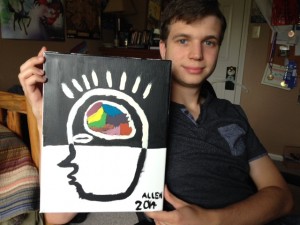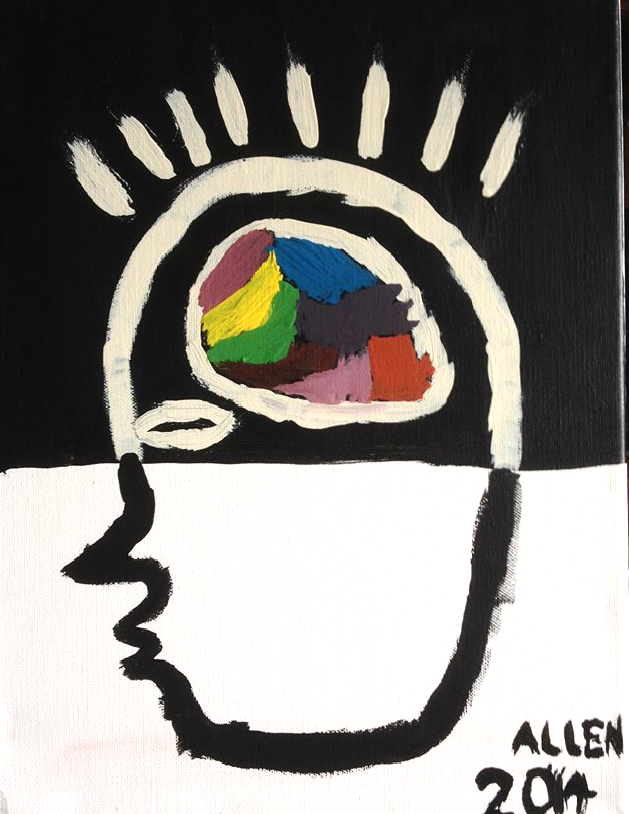Samuel Allen, diagnosed with ASD, attempts to explain to neurotypicals how it “feels” to have autism by way of art and an audio description.

A graduate of Abilene Christian University, Jennifer had a long career in TV Broadcasting. Upon learning her oldest son Sam had a form of Autism called Asperger’s Syndrome, she left her career and became a full-time mother to both of her sons. Jennifer elicited the participation of her family and together they produced several independent programs including a children’s animated series titled Ameriquest Kids, as well as a documentary and book titled, Coping to Excelling: Solutions for School-age Children Diagnosed with High-Functioning Autism or Aspergers Syndrome. She formed the nonprofit Asperger101 to provide on-going free resources related to ASD at Aspergers101.com and has implemented the Texas Driving with Disability Program and continues to grow the statewide initiative today. She and her husband have recently retired to their property in the Texas Hill Country.












